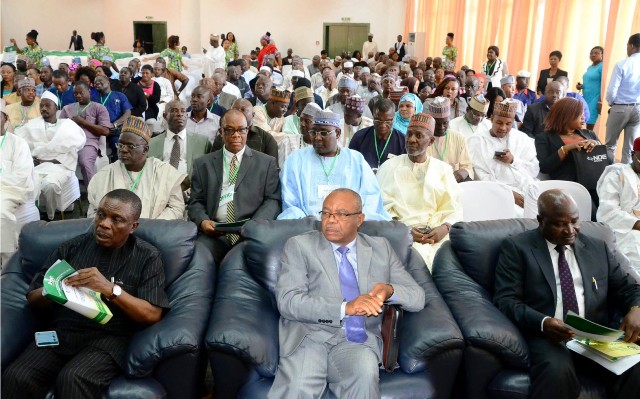Business
Bayelsa Creates 7,000 Jobs …Releases N1.88bn To SMEs

Bayelsa State Government say it created over 7,000 direct and indirect jobs within the past five years by releasing N1.88billion SME loans to entrepreneurs and cooperatives.
Deputy Governor of the state, retired Rear Admiral John Jonah, who represented Governor Seriake Dickson, announced this at the 2017 African SME EXPO with the theme; “Promoting SMEs for sustainable development and economic growth”.
The administration, according to Dickson, achieved the feat in partnership with the Bank of Industry and other relevant agencies to enhance the growth of SMEs with direct impact on the economic growth of the state.
Dickson said that in furtherance of the commitment to job-creation and empowerment of the teeming youths, the state was making efforts to partner with BoI for a N2 billion Medium, Small and Micro Enterprenuership loan.
He explained that in 2015, the government launched Izon Microfinance Bank to provide small businesses and serious minded entrepreneurs with access to capital.
“This is important for us because funding is crucial if people are to innovate and think outside the box.
“We have achieved so much since the commencement of the Microfinance Bank, especially because the bank has, with support provided by CBN and other funding partners, supported women groups and cooperatives in the state to venture on their own,” Dickson said.
Describing SMEs as panacea for the growth of the local economy, Dickson stressed the need for the promotion of locally made goods and simplify the registration process of businesses.
“We need to deliberate on strengthening the existing institutions as in the Bayelsa example, where it is law that one per cent of the annual state budget is released to the Bayelsa State Microfinance and Enterprises Development Agency for SME development yearly.
“We must simplify the registration processes for businesses and encourage their migration from the informal to the formal sector through regulation and proper monitoring.
“As leaders and opinion shapers, we need to encourage technology diffusion through value chain processes and establish priority sectors for local investment,” the governor said.
Dickson in his presentation, recommended tax incentives for priority sectors, describing it as means of boosting local production.
In addition, he advocated training and incentives for the utilisation of local production resources for SMEs that establish operations in certain designated areas.
Business
Fidelity Bank To Empower Women With Sustainable Entrepreneurship Skills, HAP2.0
Business
President Tinubu Approves Extension Ban On Raw Shea Nut Export
Business
Crisis Response: EU-project Delivers New Vet. Clinic To Katsina Govt.
-

 News2 days ago
News2 days agoAmend Constitution To Accommodate State Police, Tinubu Tells Senators
-

 Politics2 days ago
Politics2 days agoSenate Urges Tinubu To Sack CAC Boss
-

 News2 days ago
News2 days agoDisu Takes Over As New IGP …Declares Total War On Corruption, Impunity
-
Business2 days ago
President Tinubu Extends Raw Shea Nuts Export Ban To 2027
-
Business2 days ago
Crisis Response: EU-project Delivers New Vet. Clinic To Katsina Govt.
-
Business2 days ago
President Tinubu Approves Extension Ban On Raw Shea Nut Export
-
News2 days ago
25 Killed In Adamawa Jihadist Attacks
-
Business2 days ago
FG Pushes Cassava Bioethanol Drive To Boost Industrial Growth

